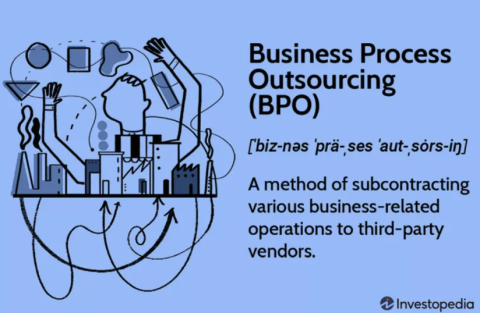How to Build Positive Work Culture and Employee Satisfaction with Your Business Process Outsourcing (BPO) Company

How to Build Positive Work Culture and Employee Satisfaction with Your Business Process Outsourcing (BPO) Company
Business Process Outsourcing (BPO) has emerged as a key tactic for firms aiming to refine their processes and concentrate on their main strengths. Yet, adopting outsourced services extends past just tweaking operations; it deeply affects the atmosphere at work and how happy employees feel.
BPO efforts transform workplace settings, affecting how teams feel, communicate, and their overall contentment with their jobs. Grasping these impacts is essential for companies wanting to fully benefit from outsourcing, all while keeping a positive and effective work environment.
What is Business Process Outsourcing?
Business process outsourcing (BPO) involves entrusting a variety of business functions to external service providers, allowing companies to focus on their core operations. BPO is divided into two types: front-office and back-office outsourcing. Front-office outsourcing encompasses jobs that require direct interaction with customers, such as marketing, advertising, and assisting customers with difficulties. On the one hand, back-office outsourcing includes jobs that happen behind the scenes — examples include handling computer systems, managing finances, and personal management.

BPO is a long-standing element in the outsourcing space, but it's grown and improved decently over time. Its main objective was minimizing costs by giving manual, repetitive tasks to others. However, with the progress of technology and increased global connectivity, BPO evolved to center both monetary benefits and a pathway to obtain special skills from experts around the world. This is key in enhancing the quality of service that goes beyond just being a strategy to reduce cost.
At the moment, the BPO industry is going through significant changes that reveal how necessary it is for businesses worldwide. Utilizing digital technology like machine learning and mechanization gives outsourced BPO companies the ability to deliver more value. Furthermore, companies are picking outsourcing partners that are near them. This is known as onshoring. It helps reduce the risk of contracting with faraway companies. There is increasing demand for more knowledgeable BPO providers, which would show that businesses depend on outsourcing for necessary assistance and not just for the usual routine.
Workplace Culture in the BPO Industry
The global business process outsourcing industry soared to an impressive $280.64 billion valuation in 2023, with projections indicating a robust compound annual growth rate (CAGR) of 9.4% from 2023 to 2030, as reported by Grandviewresearch in 2021.

The BPO setting is very dynamic, mirroring ever-evolving international markets. Being able to adapt and have flexibility is invaluable. It helps employees solve numerous problems and minimize their stressors.
Teamwork is a necessity, and togetherness is vital in meeting client expectations. Communication is very important, and there are opportunities for personal development, all directed towards inspiring and maintaining talent in this cutthroat industry.
The BPO industry is different, and many people from other cultures and languages work on it. This mix is good because a diversity of ideas makes the workspace innovative. With the help of a BPO company, businesses can serve clients globally because employees are fluent in different languages and have an understanding of various cultures. Enforcing togetherness can be a little bit tricky due to these differences. Understanding culture is key to ensuring respect at work and peaceful coexistence.
Team spirit is important in the BPO industry, but there can be obstacles to achieving the ideal state of collaboration. Teamwork is a big challenge as employees work from different countries and have different time zones, making it hard for them to connect. Many people come and go from BPO jobs, making it difficult for them to be united. Dealing with this difficulty requires good training programs in the company and events that bring everyone together and make them remember the company's purpose.
Employee Satisfaction in the BPO Sector
Numerous factors influence the happiness of employees at BPO firms. These include equitable compensation, a good balance between work and personal life, and recognition and rewards for their dedication and capable direction. Feeling secure in their occupations can also encourage them even when work gets tedious.
A good job in a good workspace, healthy co-workers, learning prospects, and a healthy environment contribute to employees' happiness. They won't be encouraged if they don't understand their job, can’t develop, or are stuck in an unhealthy work environment.
BPO workers may become exhausted due to long hours, slow growth in their careers, and the feeling of not being recognized. This can make them unhappy with their jobs, leading to burnout.
To solve these challenges, adaptable work schedules are required, along with offering pay that compensates them and opportunities. Building a career path that's clear and innovative leads to reward systems that celebrate employee success. Moreover, encouraging honest and open communication and efficient complaint resolution channels enhance the work environment.
Impact of BPO on Workplace Culture
BPO brings different people together, each with specialized talents and work patterns. The mix of these distinct abilities can nurture company culture, making the workplace more captivating and creative.
Nevertheless, This diversity can lead to cultural clashes, causing issues like confusion and differences in communication. When outside teams join a company, there will be a need to adjust communication and how work is done. This might be uncomfortable at first, but as time goes on, the workplace will be stronger and more flexible.
Management plays an important role in solving these problems, solving them, and nurturing a workplace with good vibes during BPO projects. Strong leadership is a necessity in uniting outsourced and in-house teams. This involves encouraging open communication, planning team-building events, and making sure every member of staff feels respected and connected to the company’s culture, regardless of their location. Management should also tackle any situation that causes unhappiness to sustain motivation and efficiency.
Impact of BPO on Employee Satisfaction
The influence of BPO on the mood of employees is complicated. On the flip side, It can assist companies in focusing on their essential tasks, setting up an energetic environment where fresh ideas can thrive. However, moving to BPO can make workers worried, causing fatigue. This could result in concerns about job security or feelings of isolation, which can minimize work fulfillment.
Outsourcing doesn't affect just one thing; it always has a chain reaction. It can affect the security of jobs, making employees overwhelmed concerning keeping their jobs or transferring to a different area of the company, this concern can make people leave their jobs. When outside teams are handling work, it can make it extremely difficult for employees to have a vision for their career growth.
Enhancing Employee Satisfaction in BPO Environments
Support Systems: To counteract the negative impacts of BPO on satisfaction, it's crucial to take strategic actions.
- Open Communication: When you share outsourcing intentions and impacts openly, it creates trust and stability.
- Employee Engagement: Employees should be involved in BPO transitions to make everyone feel like they're building company culture together.
- Enhancing Careers: To help employees find fulfillment in their careers and be flexible in new company roles, there should be training to improve their skills.
- Providing Support: Proper guidance and assistance will help employees manage emotional difficulties during the BPO transition.
- Recognition and reward: Appreciating employees' hard work by rewarding them will create a positive work environment and build confidence.
Balancing BPO Benefits with Cultural and Satisfaction Challenges
By embracing specific strategies, companies can capitalize on Business Process Outsourcing (BPO) while nurturing a supportive workplace atmosphere. Key methods include:
- Clear Communication: When BPO plans, benefits, and outcomes are shared with employees it will ensure everyone has a better understanding and minimize doubt.
- Value-Based BPO Selection: Select BPO partners with similar business ethics and values to preserve cultural unity.
- Build Relationships: Strong connections with outsourced teams should be cultivated through consistent virtual meetings, collaborative games, and field trips. This will encourage cooperation and harmony among team members.
HR's Role in Cultivating Culture and Satisfaction
The Human Resources (HR) department is pivotal in steering the cultural and satisfaction dynamics within BPO frameworks by:
- Feedback Systems: Team members should be able to freely express their worries and opinions through standard outlets. This will ensure that any issue is addressed and resolved on time.
- Cultural Sensitivity Training: cultural awareness meetings should be held for all staff, whether they work on-site or virtually, to encourage shared esteem.
- Recognition Initiatives: The efforts of in-house teams and outsourced employees should be acknowledged by the organization
Integrating Outsourced Teams into Corporate Culture
Successfully integrating outsourced teams into the existing company culture requires:
- Knowledge Sharing: Outsourced employees should be allowed to share what they know so that everyone can learn and work together.
- Streamlined Communication: Communication among team members should be easy regardless of their location
- Embracing Diversity: Appreciate and celebrate diverse cultures to create a homely vibe and strengthen team unity.
Make Your Relationship with BPO Partners Harmonious
Outsourcing has a significant influence on procedures in a workspace and the happiness of the employees. It is beneficial for saving money and getting skilled assistance, but it also can raise challenges. For BPO to work without the team being distressed, there should be open communication and BPO should follow the rules. Being warm and welcoming to outsourced staff and prioritizing their happiness creates a thriving and happy work environment that fully utilizes the opportunities BPO has to offer.
